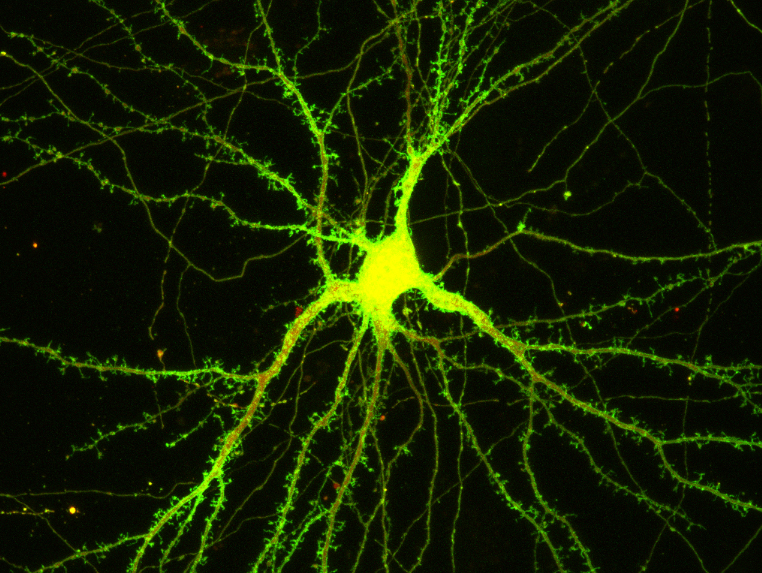Important for Learning: Protein Strengthens Neuron Connections
Learning leaves its mark on the brain. The recently identified ‘learning protein’ Copine-6 plays a crucial role in this process. Scientists from the Biozentrum at the University of Basel have now discovered that this protein strengthens the connections between nerve cells, accelerating the flow of information and thereby forming the basis for learning and memory. The absence of this protein leads to learning deficits. The study has recently been published in “Nature Communications”.
23 May 2016
The brain resembles an extensive network of roads. Frequently used connections between nerve cells expand into highways, while seldom used ones close. This ability is essential for learning and memory. The team of Prof. Markus Rüegg at the Biozentrum of the University of Basel has shown for the first time that the protein Copine-6 is required for the expansion of neuronal connections and mice lacking Copine-6 have great difficulty in learning new skills. By reshaping and strengthening the junctions between neurons, the transmission of signals from one nerve cell to the next becomes more efficient.
A signal to strengthen connections
The protein Copine-6 is mainly expressed in the neurons of the hippocampus, a brain area important for learning and memory formation. The contacts between nerve cells, known as synapses, are essential in this process as they permit a neuron to pass information to another cell. A neuron receiving signals has thousands of these synaptic connections, allowing its activation by many different neighboring cells. Repeated use of a synapse, for instance during learning, strengthens the connection between neurons and makes signal transmission more efficient.
Lack of Copine-6 leads to learning deficits
In their study, the researchers stimulated nerve cells chemically to trigger calcium influx – the initial spark for learning. They found that Copine-6 is recruited to the synapse of the neuron, binding to the cell membrane in a calcium-dependent manner. This, in turn, leads to re-arrangements of the cytoskeleton and finally to structural changes of the synapses. By increasing the size and contact surface of the synapse, the connections between neurons become stronger and, consequently, the flow of information more efficient. “In mice lacking Copine-6 we could show that this protein really affects learning,” explains Judith Reinhard, first author of the study. “In a special learning test, these mice performed much worse than their normal peers. Through restructuring of the synapses Copine-6 essentially increases signal transmission. Small roads convert to highways, which makes our brain adaptive and capable of learning.”
Link to memory disorders
Alzheimer’s disease, autism and Fragile X syndrome are diseases that affect learning and memory. Copine-6 may play a role in these diseases, since this learning molecule regulates specific signaling pathways known to be disturbed in these diseases. “With our recent discovery that Copine-6 is directly involved in learning and memory formation a new factor which might cause learning disabilities comes into play,” says Rüegg. “In the future, we would like to focus on the other, still relatively unknown members of the Copine family and investigate whether they perform similar tasks in other brain regions as Copine-6 in the hippocampus.”
Original source
Judith R. Reinhard, Alexander Kriz, Milos Galic, Nico Angliker, Mathieu Rajalu, Kaspar E. Vogt and Markus A. Ruegg
The calcium sensor Copine-6 regulates spine structural plasticity and learning and memory
Nature Communications (2016), doi: 10.1038/ncomms11613
Further information
- Prof. Dr. Markus Rüegg, University of Basel, Biozentrum, phone: +41 61 267 22 23, email: markus-a.ruegg@unibas.ch
- Dr. Katrin Bühler, University of Basel, Biozentrum, Communications, phone: +41 61 267 09 74, email: katrin.buehler@unibas.ch



